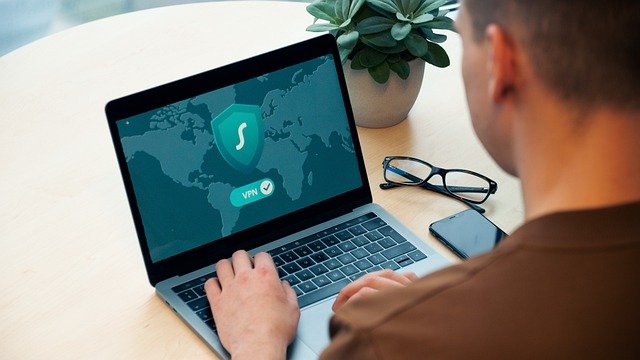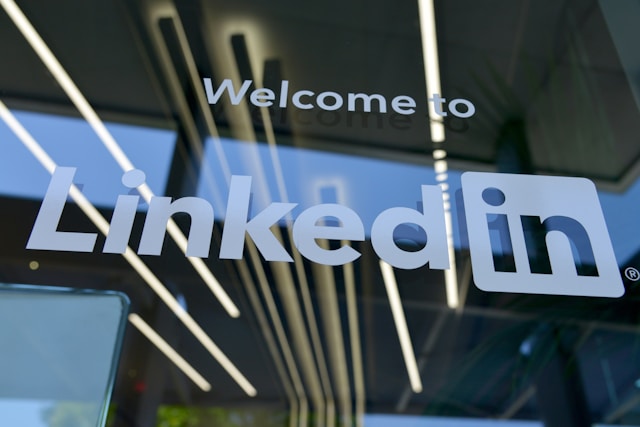There is no such thing as absolute online security or anonymity. A VPN is beneficial, but you can still be tracked online if you are logging into accounts, saving cookies in your browser, or publishing publicly you can still be tracked.
Let’s put it another way. A VPN will prevent your ISP from observing you, but it won’t stop the FBI or NSA from breaking down your door if they’re looking for you.
Advertisers and big tech companies have a variety of strategies to get around virtual private networks (VPNs) too.
How can a VPN improve your internet security and privacy?
- A VPN encrypts and anonymizes your data.
- A VPN masks your IP address from the public internet.
- Your ISP is unable to see what you’re doing because of a VPN.
- A VPN protects you when using public WiFi.
What Information Can Your Internet Provider Really Discover About You?
When a website address begins with http://, this indicates that your traffic is not encrypted. Your ISP can see where it’s going and everything you’re sending. Everything to your ISP and any hacker who manages to intercept the flow is visible. What’s concerning is how easy that interception of traffic is to do, especially if you’re utilizing open WiFi. There are free and public tools which anyone can download and YouTube tutorials that teach how to use them.
Obviously, this is a problem, which is why for the last couple decades the internet has been transitioning to HTTPS encryption. Anytime you see a padlock in your browser’s URL bar, it means that you are accessing the web via HTTPS. This encrypts the traffic between you and the website. Your ISP can see that you’re visiting a particular site, but they can’t see the contents of what you’re sending or receiving.
What Does a VPN Do to Hide What You Do Online?
VPNs work by redirecting your Internet traffic to a different address, the address of the VPN server, which is then rerouted to its intended destination. It’s similar to the function of a mail forwarding service.
The ISP delivered the mail to the VPN server, and it knew that IP addresses the whole time, but it can’t know what will happen to the traffic afterwards.
Likewise, all the recipient, of the site you’re visiting knows is that they received traffic from the VPN’s IP address. Your IP address is unknown to everyone on the other side of the VPN.
By using a VPN you break the chain that links you, your ISP, and the final destination.
Will your ISP and the final website know you’re using a VPN? Yes, but what difference does it make?
Geo-Blocked Content and Streaming Services: What You Need to Know
The world is shackled by antiquated broadcasting regulations that are reminiscent of another era, when people gathered around their televisions in their living rooms. Aside from waiting for rules to catch up, there’s no good reason not to use a VPN to access streaming services from other regions, especially if you’re willing to pay for them.
Despite what appears to be common sense, the US Netflix store offers films that aren’t accessible in the UK and vice versa. If you’re travelling, it’s good to watch TV shows from your own home. However, without a VPN, this may be difficult. Most streaming services are region or country-restricted or even flat out prohibited in various nations.
Internet Localization
If you’re outside your home country, you’ll be presented with a local version of the internet. The internet will be Chinese or Arabic or Thai. You won’t get news from home anymore by default, and logging into all your accounts has become more difficult because now you need to input 2-FA SMS codes.
If you appear in a location other than the one where you created your account, it is a cause for concern for your banks, and they react by locking accounts. To unlock them, you’ll need access to a computer or phone contact. Being unable to access your internet bank on arrival in a country or even 2 months into your journey is incredibly inconvenient. A VPN may assist with this situation.
Unblocking Websites at Work
There are a variety of reasons companies decide to block websites on computers. These blocks might be at the network level, and you can’t get around them even using your own phone or computer.
By changing your traffic destination, you may access blocked material. The IP address of YouTube.com might be on a blacklist but the VPN server isn’t. Of course, there is the issue of workplace computers preventing you from installing VPN software.
If you encounter this problem try the SurfShark Chrome extension. School and work computers normally cannot detect when you add Chrome extensions to the browser.
Let’s Wrap This Up
A VPN isn’t the ideal solution to online privacy, but it’s a step in the right direction. The major reasons to utilize a VPN are: To hide what you’re doing from your ISP. Unblock geographically restricted material. Get around workplace restrictions on access to the internet. While travelling abroad, view the web in your native tongue. Avoid having your accounts closed due to suspicious activity. If you’re still on the fence about whether or not you need one, click here to learn more about VPNs and how they can help.






